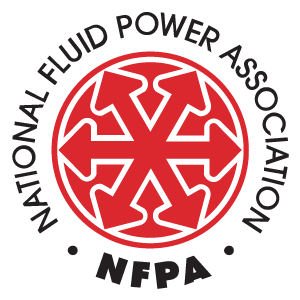As part of an effort to bring more information about the regulatory and legal environment facing American manufacturers, NFPA is monitoring the newsfeed of the National Association of Manufacturers (NAM) and will be bringing important updates like this to the attention of NFPA members.
A bill introduced late last week (Aug 14) that would ban certain shipments from being imported to the U.S. through the de minimis entry would harm manufacturers in the U.S. and clog supply chains, according to the NAM.
What’s going on: The bill would make certain goods, such as imports subject to 301 tariffs, ineligible for entry into the U.S. under de minimis.
- De minimis allows goods valued at less than $800 to enter the U.S. tax-free and with minimal delay.
- While Customs and Border Protection has the resources to assess and collect duties on high-value formal entries subject to 301 tariffs, making such determinations on more than 1 billion shipments valued under $800 would be impossible with the CBP’s current staffing levels.
- The CBP would likely need to hire tens of thousands of additional agents, import specialists, inspectors and lawyers to implement the bill.
Unintended consequences: Every minute the CBP spends focusing on classifying low-value shipments to collect a minimal duty is a minute that they are not inspecting packages that may pose a high risk.
- Focusing on tariff collection will also create a backlog in package processing, aggravating the U.S.’s highest volume air and seaports and diverting border resources.
- Further, a recent economic study details how degrading de minimis would reduce aggregate welfare by up to $14 billion, resulting in a regressive tax that would target the poorest zip codes in America.
What should be done: De minimis “benefit[s] thousands of American small businesses across all sectors,” the NAM and five allied groups said earlier this year. The Biden administration and the administration that follows it should look for “practical … ways to improve de minimis” that do not punish manufacturers or consumers, they advised.
- For example, the CBP should enforce existing U.S. trade laws at the border by separating compliant and illicit packages.
- The agency “should identify ways to use publicly available information and emerging technology … to validate data received across cargo environments, including de minimis,” the groups said.
Recent Posts
Explore Speaker Lineup for NFPA’s 2025 Annual Conference
2025 NFPA Annual ConferenceFebruary 25-27, 2025Tucson, AZRegistration Now Open NFPA’s upcoming 2025 Annual Conference will feature a lineup of expert speakers dedicated to sharing valuable insights and information with attendees. Ranging in topics from geopolitical disruption to the future of fluid power updates, attendees can expect the presentations to provide exclusive content that can’t be found anywhere…
Please Complete and Share Survey on Drivers in Fluid Power Customer Markets
The National Fluid Power Association (NFPA) seeks to engage with stakeholders across the fluid power supply chain to publish a technology roadmap for fluid power in industrial, or in-plant, applications. This roadmap will be a document that describes the evolving needs of companies in fluid power’s many industrial customer markets, the degree to which fluid…
Oxford Economics Winter Fluid Power Forecast Out Now!
Global Fluid Power Report and Forecast includes a global macro summary, by-country customer market forecast & analysis, as well as by-country fluid power industry forecasts. Countries covered in the report: US, Canada, Mexico, Brazil Poland, Netherlands, Italy, Germany, France, Belgium, UK, Russia, Taiwan, South Korea, Japan, Indonesia, India, China, Australia, UAE, and South Africa. Oxford Economics released the…



